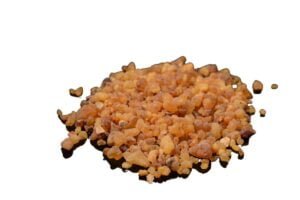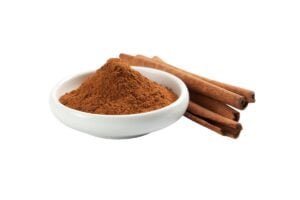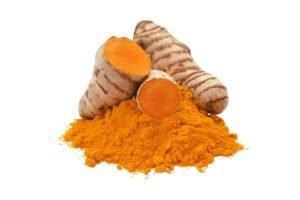8 Effective Ayurvedic Herbs for Weight Loss: Comprehensive Guide with Scientific Research

Ayurveda, the ancient Indian system of medicine, provides a holistic approach to health, including weight management. This guide explores eight potent Ayurvedic herbs known for their weight loss benefits, supported by scientific studies and research papers.
8 Powerful Ayurvedic Herbs Explain
1. Guggul: The Natural Fat Burner

Benefits and Research on Guggul
Guggul is derived from the resin of the Commiphora mukul tree. It is celebrated for its fat-burning properties, metabolic enhancement, and cholesterol-lowering effects. A study published in the Journal of Obesity highlighted Guggulsterone, the active compound in Guggul, as a potent fat burner that aids in weight reduction and improves lipid profiles (Tripathi et al., 2021).
How to Use Guggul
Guggul can be taken in capsules or powder form. The recommended dosage is typically 25 to 75 mg, three times daily. It is advisable to consult with an Ayurvedic practitioner for personalized advice.
2. Triphala: The Detoxifying Trio

Benefits and Research on Triphala
Triphala, a combination of three fruits (Amla, Haritaki, and Bibhitaki), is renowned for its detoxifying properties. According to a study in the Journal of Alternative and Complementary Medicine, Triphala improves digestion and promotes healthy bowel movements, which are crucial for weight loss (Kumar et al., 2017).
How to Use Triphala
Triphala powder is best consumed with warm water before bed to help cleanse the digestive system overnight.
3. Garcinia Cambogia: The Appetite Suppressant

Benefits and Research on Garcinia Cambogia
Garcinia Cambogia, a tropical fruit, contains hydroxycitric acid (HCA), which has been shown to suppress appetite and inhibit fat production. A clinical study published in the Journal of Obesity confirmed that HCA in Garcinia Cambogia effectively reduces body weight and fat accumulation (Onakpoya et al., 2011).
How to Use Garcinia Cambogia
Available in capsule form, Garcinia Cambogia should be taken before meals. The recommended dosage is around 500 mg, three times daily.
4. Fenugreek: The Blood Sugar Regulator

Benefits and Research on Fenugreek
Fenugreek seeds are rich in soluble fiber, which helps control blood sugar levels, reduces appetite, and promotes a feeling of fullness. A study in the International Journal of Medical Sciences found that fenugreek supplementation significantly improves glycemic control and reduces body fat (Neelakantan et al., 2014).
How to Use Fenugreek
Soak a tablespoon of fenugreek seeds in water overnight. Drink the water and chew the seeds on an empty stomach in the morning. Alternatively, fenugreek powder can be added to meals.
5. Cinnamon: The Metabolism Booster

Benefits and Research on Cinnamon
Cinnamon helps regulate blood sugar levels and boosts metabolism, reducing insulin resistance and aiding in weight management. Research published in the Journal of Diabetes Science and Technology highlighted cinnamon’s role in improving insulin sensitivity and reducing body weight (Mang et al., 2006).
How to Use Cinnamon
Add a teaspoon of cinnamon powder to your morning tea or coffee, or sprinkle it on fruits, oats, or yogurt.
6. Ginger: The Digestive Aid

Benefits and Research on Ginger
Ginger enhances digestion, reduces inflammation, and increases metabolic rate, making it a valuable herb for weight loss. A study in the Metabolism Journal demonstrated that ginger supplementation significantly enhances thermogenesis and reduces hunger (Mansour et al., 2012).
How to Use Ginger
Consume ginger tea daily by boiling fresh ginger slices in water. Ginger powder can also be added to soups, curries, and smoothies.
7. Turmeric: The Anti-Inflammatory Agent

Benefits and Research on Turmeric
Turmeric contains curcumin, known for its anti-inflammatory and antioxidant properties. It helps in weight loss by reducing inflammation and improving metabolic function. A review in the European Journal of Nutrition found that curcumin supplementation significantly reduces BMI and weight in overweight individuals (Sahebkar et al., 2015).
How to Use Turmeric
Incorporate turmeric powder into your diet through curries, soups, or smoothies. Drinking turmeric milk (golden milk) before bedtime is also beneficial.
8. Ashwagandha: The Stress Reliever

Benefits and Research on Ashwagandha
Ashwagandha is an adaptogenic herb that helps the body manage stress. Lower stress levels can reduce cortisol, a hormone linked to fat storage, particularly in the abdominal area. A study in the Journal of Evidence-Based Complementary & Alternative Medicine indicated that ashwagandha supplementation significantly reduces stress and cortisol levels (Chandrasekhar et al., 2012).
How to Use Ashwagandha
Ashwagandha can be taken as a capsule or powder mixed with water or milk. The recommended dosage is typically 300-500 mg twice daily.
Ayurvedic Weight Loss Pathway

In conclusion
incorporating Ayurvedic herbs into your daily routine can be a natural and effective strategy for weight management. Herbs like Guggul, Triphala, Garcinia Cambogia, Fenugreek, Cinnamon, Ginger, Turmeric, and Ashwagandha offer a variety of benefits, from boosting metabolism and suppressing appetite to improving digestion and managing stress. Supported by scientific research, these herbs not only aid in weight loss but also promote overall health and well-being. Always consult with a healthcare professional or an Ayurvedic practitioner to tailor these remedies to your individual health needs. Embrace the wisdom of Ayurveda and take a step towards a healthier, more balanced life.








